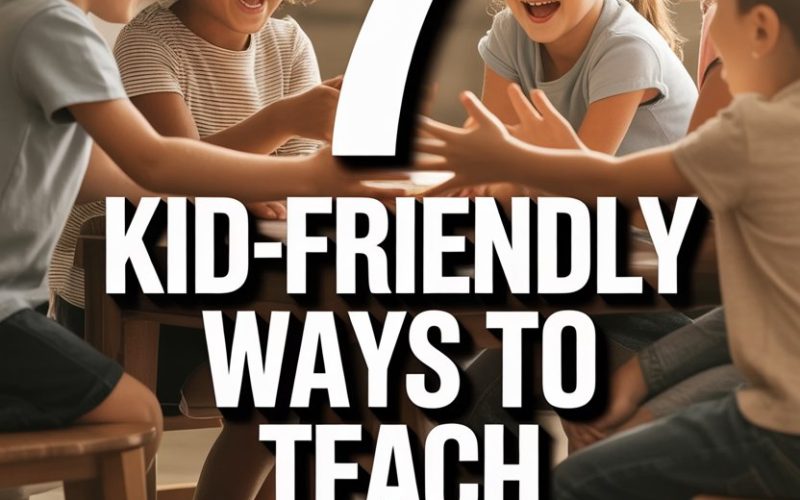Raising truthful kids sometimes feels like searching for a matching sock in the laundry pile: you know it’s in there somewhere, but wow, it can be elusive.
Between little white lies about brushing teeth and stories about how the biscuit tin “just fell open,” honesty is a virtue that needs regular, gentle polishing.
Busy parents, this one’s for you—practical, bite-sized ways to help your child choose truth over tall tales, even on days when you’d rather just believe the biscuit tin story and move on.
1. Make Truth-Telling Safe
Before children will be honest, they need to believe it’s safe—even when the truth might land them in a bit of trouble.
If your little one fesses up about smuggling biscuits, try a response like, “I’m glad you told me the truth. Next time, let’s ask before taking snacks.”
Mistakes happen. The key is showing that truthfulness earns respect, not just consequences.
A study published in the Journal of Experimental Child Psychology found that kids are more likely to be honest when parents respond calmly, rather than with anger or shame.
The message: honesty won’t get you a medal, but it won’t get you a meltdown either.
2. Praise Honest Effort, Not Just Outcomes
Sometimes a child’s honesty comes bundled with a “creative” attempt at damage control. The spilled juice wasn’t the dog’s fault, thank you very much, it was an “experiment.”
Recognise the courage it takes to come clean. Try saying, “Thank you for telling me what happened, even though it was hard. That shows real bravery.”
When children feel seen for their honesty, they’re more likely to repeat it.
If you only celebrate truth when it’s easy, you’ll miss out on those wobbly but important moments when your child chooses it in tough situations.
3. Be a Living, Breathing Example
Kids are like little truth antennas. They pick up on everything, including the fib you told your neighbour about loving their famous “casserole.” If you fudge the truth, even in small ways, children notice.
Aim for transparency, especially when it’s tempting to gloss over an awkward truth.
If you’re running late, admit it. If you forgot to pay for the school trip, don’t palm it off on “technical problems with the banking app.” (We’ve all been there.)
Little eyes are always watching—sometimes even when you wish they weren’t.
4. Turn Mistakes Into Honest Conversations
No one expects perfection. When you catch your child stretching the truth, resist the urge to dish out a lecture.
Instead, ask open-ended questions like, “What happened?” or “Can you help me understand why you said that?”
This shifts the focus from punishment to understanding. According to child psychologist Dr. Victoria Talwar, “When parents use warmth and reasoning and less harsh discipline, children are more likely to be honest.”
It’s not about letting dishonesty slide. It’s about helping your child reflect and grow, rather than pushing fibs further underground.
5. Use Stories and Games to Model Honesty
Storytime isn’t just for winding down after dinner; it’s prime time for lessons in integrity. Books like The Boy Who Cried Wolf or Ruthie and the (Not So) Teeny Tiny Lie introduce honesty in a way that sticks.
Role-play is another secret weapon. Take turns telling silly “truths” and “lies,” then guess which is which.
This not only sharpens critical thinking, it opens the door for conversations about why being honest matters.
For older kids, try honesty games like “Two Truths and a Fib.” (Spoiler: You’ll learn things about your child you never expected. They once ate a worm at school? Really?)
6. Don’t Set Traps
The classic “Did you eat the last biscuit?” when you already know the answer is tempting—who hasn’t wanted to catch a child red-handed with a crumb moustache?
But setting up a “gotcha” moment makes honesty a risk, not a reward.
If you know what happened, gently state the facts: “I see the biscuit tin is empty and crumbs on your shirt. Can we talk about what happened?”
This approach removes the need for your child to invent a hasty cover story.
Kids are more likely to be truthful when they’re not on the defensive.
7. Encourage Self-Reflection
Even small children can reflect on their choices with a nudge in the right direction.
After a fib or a confession, ask, “How did telling the truth make you feel?” or “What could you do next time if you’re worried about telling the truth?”
This kind of gentle prompting helps kids connect honesty with inner feelings—not just avoiding trouble. Over time, they’ll start to see that truthfulness isn’t just about rules, it’s about feeling good about themselves.
You might be surprised at what you hear. Sometimes, children experience real relief when the truth is out, even if there are consequences.
Building Trust, One Truth at a Time
Children learn honesty gradually—and often through a lot of spilled juice, missing biscuits, and awkward confessions.
Every honest conversation is a brick in the foundation of trust between you and your child.
Will your child always tell the truth? Probably not. (Would you, if you’d drawn on the wall in permanent marker?) But these moments are opportunities, not failures.
Superhero capes aren’t required. Just a willingness to listen, a dash of patience, and the courage to model truthfulness yourself.
In a world brimming with half-truths and little fibs, your effort to raise an honest child is an act of everyday heroism—biscuit tin and all.




